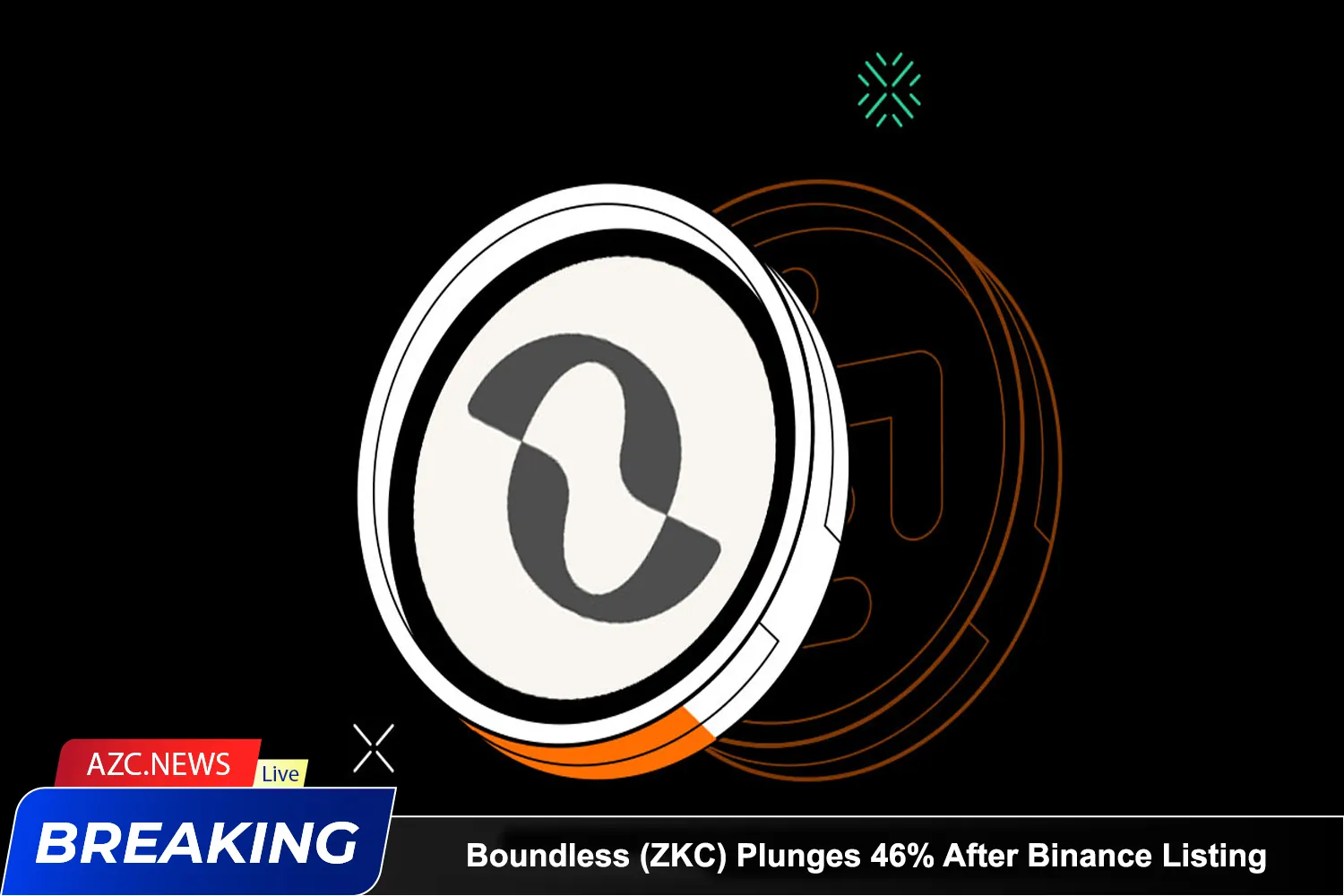A Dramatic Debut on Binance
On September 15, Boundless first appeared on Binance Alpha at 12:30 UTC, before quickly securing a full spot listing on Binance’s main platform. At the same time, the project also announced the launch of its mainnet on Base, marking its transition from beta testing into full-scale operations.
Initially, Boundless attracted strong attention, opening at $1.65 and briefly rallying to $1.78 within the first hour of trading. However, the excitement was short-lived. Intense sell-offs from early investors and airdrop recipients soon overwhelmed the market, sending ZKC into a freefall that wiped out nearly half its value in a matter of hours.
Inflationary Tokenomics and Airdrop Pressure

The sharp decline was not just the result of profit-taking. Boundless’s tokenomics raised red flags. Out of a total supply of 1 billion ZKC, over 200.9 million tokens (20.09%) entered circulation immediately upon listing. The token follows an inflationary model, starting at a 7% issuance rate in the first year before gradually tapering to around 3% by year eight.
What amplified the sell-off was the fact that 5–6% of the total supply was allocated to airdrops and fully unlocked at TGE. Binance’s HODLer Airdrop program alone accounted for 1.5% of supply, or 15 million ZKC. This flood of freely tradable tokens added significant selling pressure that dragged prices down.
Analysts warn that the inflationary issuance could erode scarcity — a key driver of value in digital assets. Without strong demand from staking and real-world adoption, Boundless may continue to face sustained selling pressure.
Boundless: Big Ambitions, Rocky Start
From a technological perspective, Boundless was designed as a Zero-Knowledge Compute Network built on Base. It offers a decentralized marketplace for zk-proof computation outsourcing that is secure, cost-efficient, and scalable. The system operates under a Proof-of-Verifiable-Work (PoVW) model, requiring provers to stake ZKC as collateral. Failures are penalized, creating a self-regulating proving economy.
The project is backed by major venture firms, including Bain Capital Crypto, Blockchain Capital, Delphi Ventures, and Galaxy. These heavyweight investors fueled high expectations that Boundless would emerge as a major player in the zero-knowledge ecosystem.
However, its debut has instead sparked panic and uncertainty. What was expected to be a breakthrough launch has turned into a dramatic sell-off. The burning question now is: Can ZKC recover to prove its long-term value, or is this 46% crash the beginning of a longer downward spiral?






